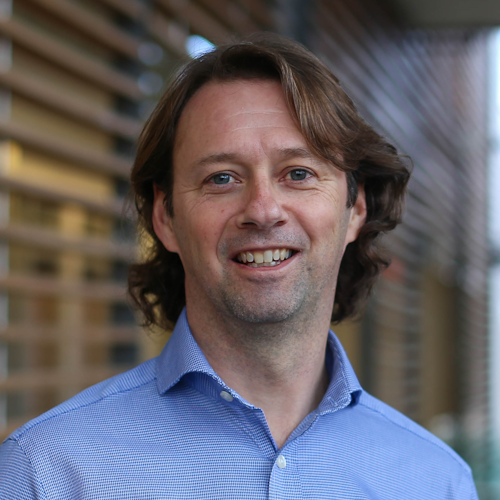Keynote Addresses
Join us at the Society for the Neural Control of Movement Annual Meeting to hear the Distinguished Career Award Winner and the Early Career Award Winner deliver keynote presentations.
Distinguished Career Award Winner Presentation
2026 Distinguished Career Award Winner
Friday, April 24: 17:00 – 18:00

Stephen Scott
Queen's University
Dr. Stephen Scott is the Vice-Dean Research for Queen’s Health Sciences and Professor in the Department of Biomedical and Molecular Sciences at Queen’s University. He has formal training in engineering and physiology, and uses this knowledge to explore voluntary motor control – how the brain controls our ability to move and interact in the environment. A key to his research program is the use of Kinarm, interactive robotic technology he invented that allows an individual to move and interact in a haptic environment. His clinical research explores the use of this device as a next-generation technology for neurological assessment. He co-founded and is Chief Scientific Officer of Kinarm, which commercializes robotic technology for basic and clinical research.
Abstract
Evolving thoughts on motor cortex
Abstract still to come
Early Career Award Winner Presentation
2026 Early Career Award Winner
Tuesday, April 21: 10:30 – 11:05

Pierre Vassiliadis
University College London and Imperial College London
Pierre Vassiliadis is a Swiss National Science Foundation fellow working with Prof. Ray Dolan at University College London and Prof. Nir Grossman at Imperial College London. Before moving to the UK, he worked with Prof. Julie Duqué and Dr. Gerard Derosiere at the Université Catholique de Louvain in Belgium and with Prof. Friedhelm Hummel at the École Polytechnique Fédérale de Lausanne (EPFL) in Switzerland.
Pierre’s research investigates how reward shapes the selection, execution, and learning of human movement, using sophisticated behavioral approaches, non-invasive brain stimulation, and neuroimaging. In recent years, he has contributed to the validation of transcranial Temporal Interference Stimulation (tTIS) in humans—a new non-invasive method for focal deep-brain neuromodulation—with important implications for the fields of motor control and reinforcement learning. Pierre now aims to translate these insights to disorders in which the reward system either insufficiently or excessively drives action.
Abstract
How reward sculpts human movement
Movement, like perception and cognition, is fundamentally shaped by the pursuit of reward. Across species, reward is known to be a powerful modulator of action, guiding action selection, movement invigoration and reinforcing successful behavior. Most work on reward has leveraged decision-making paradigms, in which agents have to learn to select among a discrete number of actions through reinforcement. Yet growing evidence indicates that reward is also instrumental in tasks with richer motor demands, such as motor learning, where individuals refine movement kinematics through practice. Despite the clear potential of incorporating reward into motor rehabilitation, the precise behavioral and neural mechanisms by which reinforcement shapes motor learning remain underexplored.
In this talk, I will first present evidence that specific properties of reinforcement feedback such as its extrinsic value, timing, and the quality of concurrent sensory feedback profoundly influence how humans control, learn, and retain motor skills. I will also discuss the feasibility, efficiency, and constraints of delivering personalized reinforcement in real time during continuous motor control in healthy adults and patients with chronic stroke.
In the second part, I will present work investigating the causal role of the striatum in motor and reinforcement learning, using transcranial Temporal Interference Stimulation (tTIS)—a non-invasive method for deep-brain neuromodulation in humans—in combination with fMRI. In particular, I will discuss data supporting the causal involvement of specific striatal rhythms in reinforcement and sensory-based motor learning, and highlight their possible implications for neuropsychiatric disorders that impact the motor and reward systems. Overall, these results illustrate the breadth of mechanisms by which reward shapes movement and delineate the promise—as well as the potential limitations—of reward-based approaches to motor rehabilitation.
